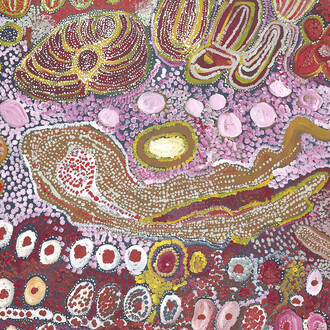Anne Truitt was one of the leading figures associated with minimalism, the sculptural tendency that emerged in the 1960s featuring pared-down geometric shapes scaled to the viewer’s body and placed directly on the floor. Born in Baltimore in 1921, Truitt grew up in Easton, a town on Maryland’s Eastern Shore.
After majoring in psychology at Bryn Mawr College and marrying the journalist James Truitt, she enrolled in studio classes at the Institute of Contemporary Arts in Washington, DC. Following sojourns in Dallas, New York, and San Francisco, Truitt settled in Washington in 1960. Apart from a stint in Tokyo, 1964–1967, the artist lived and worked in the District until her death in 2004, maintaining a succession of studios during a period when affordable space across the city was still available to artists. She saw her studio as a retreat where she could focus on her art, explaining, “In my studio I feel at home with myself, peaceful at heart, remote from the world, totally immersed in a process so absorbing as to be its own reward.”
Truitt’s art is unique within the field of minimalism; she alone remained a traditional studio artist. Whereas artists such as Donald Judd (1928–1994) and Carl Andre (b. 1935) abandoned the studio and enlisted industrial fabrication and materials, Truitt painted and sanded her wood sculptures by hand in multiple layers. And while many minimalists favored neutral tones, Truitt, in order to suffuse her work with memory and feeling, developed a daring palette that ranged from deep reds and blacks to pale yellows and lavenders. This exhibition, a survey of Truitt’s sculpture, painting, and works on paper from 1961 to 2002, traces the career of an artist who developed her work quietly and independently in the former carriage and row houses of this city.
The exhibition is curated by James Meyer, curator of art, 1945–1974, National Gallery of Art.
















